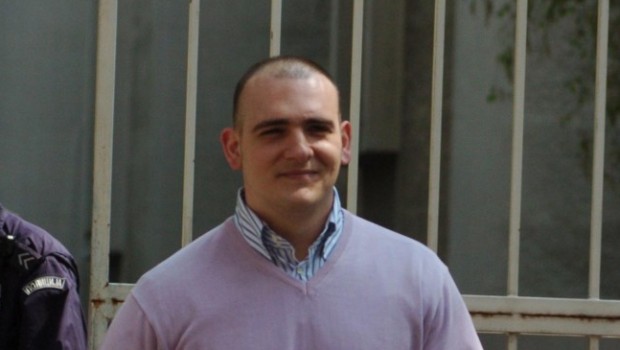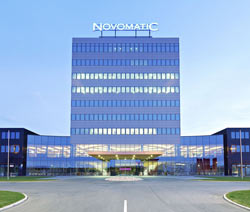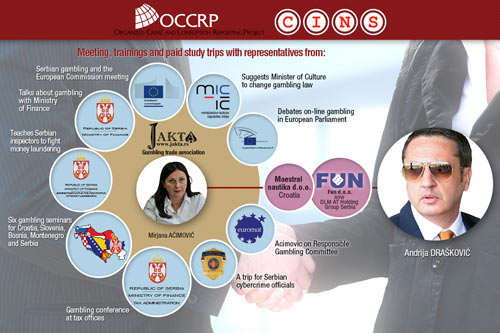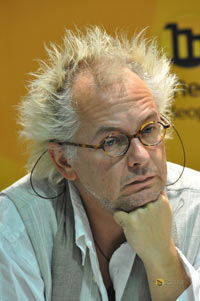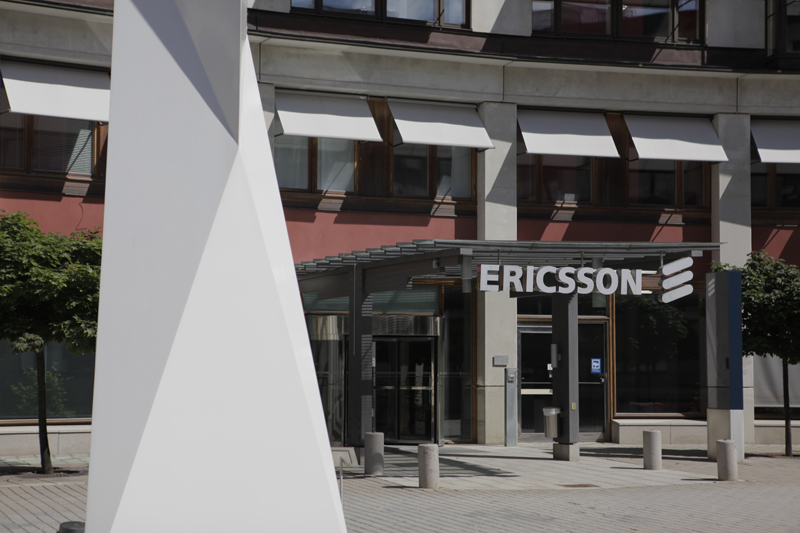Bereits vor 20 Jahren war die Klientel Mafia Politik der Berisha Leute in Albanien bekannt, ebenso sehr deutlich über den EU Polizei Missions Leiter K.S. der PAMECA Mission II, der praktisch 10 Jahre in Albanien war und schon mit der EU Polizei Mission MAPE kam und aktiv war. Er warnte 2007 vor der Klientel Politik des Bujar Nishani, schloss die von Deutschland finanzierte Polizei Akademie in Tirana. Von den inkomptenden EU Banditen lernt man nur Eines: wie man abzockt und sich Straffrei stellt:
der die Prominenz der gesuchten Drogen Bosse sofort frei lässt, trotz BKA Interpol Haft Befehles.
Vettern Wirtschaft einer Verbrecher Familie und EU und US finanziert:
Sogar der höchste Verwaltungs Direktor des HCJ (Përgjithshëm i KLD-):
,
höchste Richter Positionen und sogar Diplomaten Pass. Erpressung mit
dem Duty Free Shop, weil man die Verträge mit dem Flugplatz Betreiber
nicht einhalten will und wollte. Unter Präsident Alfred Mosiu, der eine
eigene Ermittlungs Truppe hatte, rund um korrupte Richter und Justiz
Leute, wurde jede Beförderung des Richters Gjion Gjoni abgelehnt, er kam
auf die Schwarze Liste, der korrupten Richter in 2003. Er liess
prominente Gross Drogen Bosse frei, vom BKA und Interpol gesucht usw..
wie:
Eine 700.000 € Villa mit 1.029 qm Wohnfläche, Luxus Jeeps, wo er schon ein Kind zu Tode fuhr.
Im Luxus Vorstadt Ort: Fark steht die Luxus Villa des Gjin Gjoni und seiner Ehefrau Elona Caushi
Eine Dreistigkeit an Nepotismus, welcher einmalig ist. Warum die EU
hierüber schweigt und die Verbrecher Kartelle weiter finanzierten vor
Jahren, wirft viele Fragen auf.
Vollkommenes Versagen der EU, der USA sowieso, welche ja nur ihren Drogen- Waffen Schmuggel mit der Albaner weiter betreiben wollen, über ihre US Handelskammern vor Ort, inklusive aktiver Beteiligung höchster US Department of State Diplomaten, Hillary Clinton und anderer Gestalten und Botschafter, wie dem eliminierten US Botschafter Josef Limprecht (Mitte Mai 2002)
gab in vielen Details Auskunft wie das läuft und organisiert wird auch über die Türkei und höchste US und türkische Politiker. Peinlich die Aktivitäten der Deutschen
und aktuell: u.a. CDU und KAS Politiker, welche sich mit der Prominenz der Drogen Bosse und Verbrecher ablichten lassen, wie Dr. Franz Jung.
Was sowieso jeder weiss! Bujar Nishani verkaufte als Justiz Minister,
für 30.000 € Notar Lizenzen, für Notare, welche Selbige auf Grund von
Fälschungen verloren hatten. Er hat wie jeder Mafia Boss, eine sehr
teure Uhr am Handgelenk, schon vor über 5 Jahren. Das Antritts
Geschenck, der Mafia. Jeder weiss, das hoch kriminelle Polizei
Direktoren, Strohdumm und inkomptent sind und krminelle Clans, inklusive
Land Besetzung und illegalem Bauen decken.
The High Council of Justice turns a blind eye to
judges’ misdeeds, perpetuating a culture of impunity in the corrupt
justice system.
 |
| Albania President and head of the High Council of Justice Bujar Nishani | Photo by : LSA |
A judge in the first-instance court of Shkodra, who had been
diagnosed with multiple sclerosis, found himself between a rock and hard
place after a number of citizens filed complaints against his rulings
to Albania’s High Council of Justice, HCJ.
An administrative probe carried out by the HCJ revealed that Judge
Albano Cepele breached articles of the constitution and the criminal and
civil procedural code in 34 cases.
“My vision and balance were impaired and I was receiving treatment in
a neurological hospital,” the judge said by way of defence to the HCJ.
On April 15, 2014, the Minister of Justice, Nasip Naco, asked the HCJ
to fire him on the grounds that he “had seriously discredited the
reputation of a judge”.
Although Cepele had been suffering from sclerosis for years, he was
still handling up to 590 cases a year. Minutes from the HCJ meeting on
April 15, 2014 described Cepele as “a time bomb for the system”.
The HCJ meeting approved the minister’s request to fire Cepele - one
of the rare occasions on which the Council agreed to dismiss a judge.
However, the Supreme Court disagreed with the HCJ’s ruling and overturned it after the judge appealed.
The HCJ is a collegial institution, which acts as a governing body
for the judicial system in Albania. Composed of 15 members, it is headed
by the President of Albania, Bujar Nishani.
Like the President, the Minister of Justice and the head of the
Supreme Court sit on the council ex-officio. Nine other members of the
council are judges and three are nominated by parliament.
In 2014 and 2015, the Minister of Justice asked the HCJ to take
administrative measures, ranging from dismissal to warnings, against 28
judges.
However, the Council turned down most of his requests.
One problem is that while the minister is the only official that can
request disciplinary proceeding against judges in the HCJ, he has only
one vote in the Council.
“The HCJ acts as corporation that protects judges,” Naco told BIRN.
“They are notready to fire their own, as they think that if they take
such rulings one day, they will be dismissed in turn,” he added.
Albania’s justice system is widely perceived as corrupt and many
local and international actors accuse the HCJ of doing little to reform
the system.
Minutes of HCJ meetings during the last two years, obtained by BIRN,
show the Council often turns a blind eye to judges’ misdeeds.
The minutes reveal also that the Justice Minister changed his request
for disciplinary actions against judges in half of the cases that he
brought.
Over the last year, Naco asked the HCJ to actually dismiss seven
judges. The Council approved only two requests, against Cepele and
Shtjefen Lleshi, a judge arrested in late 2013 on corruption charges.
In 13 cases, the HCJ handed disciplinary measures against judges,
ranging from warnings or downgrading their positions to lower courts.
In 15 cases it took no measures, even when inspections by the
Ministry of Justice or the HCJ inspectorate uncovered serious breaches
in judges’ work.
The minutes of the HCJ meetings reveal that in some cases the Council
voted against the minister, while in the other cases, the minister
himself changed his request to opt for a softer disciplinary measure.
Commonest breaches of the law:
HCJ meeting minutes analyzed by BIRN show the most common breaches of
the law by Albanian judges concern filing arguments for verdicts late,
procrastinating over cases for up to three years and breaching rulings
of the Supreme Court.
The HCJ has also considered judges who turn off the audio system
during court hearings and others who cannot justify their wealth and
assets to the High Inspectorate for the Declaration and Audit of Assets.
Albanian law considers such breaches as serious, but the HCJ has
often justified them, citing judges’ heavy workload or their “innocence”
of procedure.
A former deputy head of the HCJ, Elvis Cefa, says a form of tacit agreement exists among the judges to protect each other.
Cefa also blames the poor inspections on the part of the Ministry of
Justice, which he says help judges to escape disciplinary proceeding.
“Based on my experience, I would say that in front of a proper
inspection and well structured proceeding, no judge found in breach of
the law could defend himself, no matter how many friends he has in the
HCJ,” Cefa told BIRN.
The records obtained by BIRN show that HCJ meetings often feature
strong debates when the minister proposes the dismissal of a judge.
In some cases, it is the Minister of Justice who has been at the centre of the controversy.
In a HCJ meeting on February 4, 2014, Naco faced questions about a
series of five inspections of judges that the ministry’s inspectorate
conducted, which the Council had not been presented with.
According to the minutes, President Nishani, expressed concern that
the deadline to file disciplinary proceedings against the judges was
about to expire, and the inspections had still not been discussed in the
Council.
“I can’t remember them all, but based on your concern Iwill inform the HCJ officially,” he said, during the meeting.
In the interview with BIRN, Naco blamed his predecessor, Eduard
Halimi, for failing to hand him seven inspection reports about five
judges, saying that after an administrative probe he had filed charges
with the prosecutor’s office.
“Charges have been filed with the Tirana prosecutor’s office for all
five cases to find the authors who hid the files, which made it possible
for the timeframe for disciplinary proceedings to expire,” Naco said.
The minister complained that the HCJ is not living up to the government’s commitment to reform the justice system.
“In every case, the judges have the majority of votes in the
Council,” he said. “These judges don’t want the status quo to change,”
he added.
Not everyone agrees. Cefa, the former deputy head of the HCJ, blamed
the minister for the failure of disciplinary proceeding against judges.
“The concentration of power in the minister’s hand to initiate
disciplinary proceedings does not help,” he said.
“Disciplinary proceedings are destroyed by the Minister of Justice
himself, who has abused the executive power handed to him by the law,”
he claimed.
Judges’ assets under investigation:
During 2014, eight judges were under criminal investigation by the
prosecutor’s office. As with the HCJ’s administrative proceedings, the
results of these investigations have been opaque.
Two judges were found guilty of corruption in first-instance rulings but they appealed and their cases await trial.
The two were Shtjefen Lleshi, from the court of Puke, who was jailed
for three years, and Dhimiter Pojanaku, from the court of Pogradec,
jailed for three years and six months.
The prosecutor’s office currently has six judges under investigation,
accused of concealing their wealth. One who is a member of the HCJ,
Gjin Gjoni.
Other judges under investigation are Ken Dhima and Herieta Cela, Osman Alia, Aridan Kaline dhe Qani Hasa.
The minister has asked the HCJ to fire most of the judges under
investigation, but the Council has turned down all of his requests.
Albania’s High Inspectorate for the Declaration and Audit of Assets,
HIDDA has referred the six judges being probed for hiding their wealth
to the prosecutor’s office.
They are accused of hiding assets or cash ranging from a few thousands euro to as much as 2 million euro.
Naco says that the ministry is paying close attention to judges’
declarations of assets but again complains that the HCJ often rejects
his attempts to bring disciplinary proceedings.
“The income that these judges pretend they secured from teaching or
from publishing books would make even Albania’s best known writer,
Ismail Kadare blush,” he concluded.
This article was produced as part of the initiative “Raising
Awareness About Corruption Through Investigative Reporting,” supported
by the National Endowment for Democracy.
http://www.balkaninsight.com/en/article/albania-s-judges-protect-each-other-from-the-law
Selbst die US Department of State Reports sprechen nur von …. “Many judges issue rulings that do not appear to have any basis in law or fact…”
Aber wo sind die Hunderte von Millionen geblieben, für den Justiz Aufbau
in Albanien, in über 20 Jahren? Jeder weiss, wer dafür verantwortlich
ist: Sogar die Deutsche Botschafterin sagt inzwischen im TV: ka state,
ka justiz! Gestalten, welche “functional illiterate”
al sind, also nicht einmal verstehen, was sie lesen, werden Richter,
Staatanwälte, werden zum höchsten Gericht berufen, oder werden Justiz
Minister. Der US Jura Professor Nikolla Pano,
sprach sehr deutliche Worte, aber auch Deutsche Beamte, wissen das
Bestens, das Ausbildung keinen Sinn hat, weil die Teilnehmer, sowieso
Alles schnell vergessen und nicht in der Lage sind, sich kundig
zumachen. Aber als Teilnehmer von Justiz Konferenzen, wo es sehr viele
dieser Konferenzen gibt, sucht man im kriminellen Enterprise des US
(OPDAT-Mission) und EU Justiz Aufbaues (EURALIUS Mission), auch nur Teilnehmer, welche einen IQ haben unter dem eines Analphabeten.
Das Albanische Volk: “Die Troika hat für Chaos und Null Justiz: Schuld”
Die Veröffentlichgung dieser Namen der Verantwortlichen, wird per
Anwalt sofort verboten, wie es im Visa Skandal, bei allen Mafiösen
Organisationen ebenso ist (man erinnert sich an die Osmanis in
Hamburg), wo man auch vor Mord nicht zurückschreckte, um das eigene kriminelle Enterprise zuschützen.
Viele Fragen tauchen zu den mehr wie dubiosen Null Funktion Justiz Missionen auf, wie die korrupten EURALIUS (IRZ Stiftung) Bande,
Verantwortliche Amerikaner, für den Deppen Aufbau der erneuten Drogen Polizei Banden aus den USA der ICITAP.
Vor 80 Jahren, steht das schon in den Berichten, wo sich wenig geändert hat, bei den Hirnlosen ohne Bildung.
“Banditen in Offiziers Rang” auf Seite 156 u.a. heute genannt: Albanische Polizei, Justiz und SHIS.
- ↑Michael Schmidt-Neke:Entstehung und Ausbau der Königsdiktatur in Albanien (1912–1939), Seite 156 München 1987. ISBN 3-486-54321-0, abgefragt am 22. Januar 2010
- 9/19/2012
Zitat eines erfahrenen Geheimdienst Mannes: “wer die Geschichte nicht kennt” -und ignoriert, sollte zu Hause bleiben.
Rückblick: 2007: PAMECA kritisiert das Innenministerum von Albanien
und dann wurde die Polizei Akademie, wegen den kriminellen Umtrieben
von Bujar Nishani geschlossen, denn nur Kriminelle auszubilden ist nur
für die Eigen Reklame der Politischen Institutionen gut, aber nicht für
Profi Polizei.
-
- Typisch die jüngsten Fakten, u.a. über die angebliche IRZ Verbesserung der Arbeits Weise der Notare in Albanien in 2010.
Real hatten die echten und alten Notariate, eine sehr gute Rechts
Kenntniss und Funktion. Nachdem die IRZ auftauchte, verkaufte der Justiz
Minister Bujar Nishani, der schon zuvor die Polizei ruinierte (heftige
Konfrontation in 2007, mit dem Deutschen Leiter der PAMECA II Polizei
Mission), an Kriminelle Stapelweise Notar Lizensen, die keinerlei
Rechts Kenntnisse hatten und erneut begann das Urkunden fälschen,
überall in Albanien. Kaum funktioniert etwas, kommt die IRZ und zerstört
das sofort, wie auch dieses Beispiel rund um Notare zeigt. Zeitgleich
erschienen überall primitiv Kriminelle, welche sich plötzlich mit
Parteibuch: Staatsanwälte und Richter nannten. siehe die Fakten Lage,
heute von der EU und USA bestätigt, wobei real vor Ort, gute eigene
Justiz Kontakte haben seit praktisch 20 Jahren. Die Schaffung
krimineller Kasten mit Immunität war im Vordergrund dieser Art von
Justiz Aufbau.
Die Zerstörung der Justiz, durch Ina Rama, Kresniq Spahiu, Bujar Nishani und Bamir Topi und den Justiz Ministern
-
- 2007: PAMECA kritisiert das Innenministerum von Albanien
2007
Albanian Police Academy Closes its Doors
03 09 2007 Tirana_ The Albanian police notified on Sunday that a year
after its inception the Policy Academy will stop recruiting new cadets
this year owing to the high number of officers currently active in the
force.
The temporary closure of the academy came only one
month after the Ministry of Interior came under fire from the European
Union Police Assistance Mission in Albania, PAMECA, over its
restructuring of the force.
The European Commission advisors to Albania’s police force
criticized a government restructuring of the force, saying they were
concerned over the way some officers were being forced out; opposition
politicians say this was designed to advance police loyal to the ruling
party.
PAMECA said in a news release in July that the Interior
Ministry needed to be more transparent on how and why officers were
being hired, fired and promoted.
PAMECA provides strategic advice and specialized technical
training to the Albanian police over crime prevention, organized
crime, terrorism and border management.
The moving of officers through the system should be made in a transparent and justified manner, PAMECA said. There
have been a lot of transfers and firings of officers lately, which
has struck key sectors of the state police, which are essential for
the integration of the country with European institutions.
The restructuring has led to the loss of officers that
donors had spent considerable amounts of money on training, the
European police advisors said.
Interior Minister Bujar Nishani in June defended changes to
the organization of several police divisions, which he said would
make the force more productive in the fight against organized crime
and trafficking.
-
- Peinlichkeit der Albanischen Polizei "Inkompetenz", was die Verantwortlichen nun selber kritisieren
- Bujar Nishani sammelte nur Kriminelle
um sich, auch als Justiz Minister, welche dann in grosse Grundstücks
Fälschungen und Räubereien verwickelt sind und waren, wie in der Bucht
“Generale” und dem Strand von “Spille” wie mit Myzafer Xhelili, wo es Verhaftungen gab.
-
- 18/04/2014 – 07:29
Task Force Staatsanwaltschaft: Die gekauften und falschen Gerichts Urteile ruinieren Albanien
10/23/2013
Experte: über die Albanische Justiz, die keine Gesetze kennt: They’ll only bribe someone else




